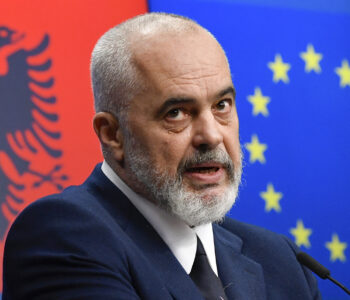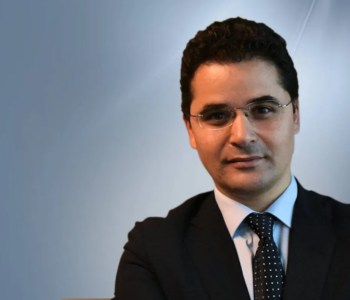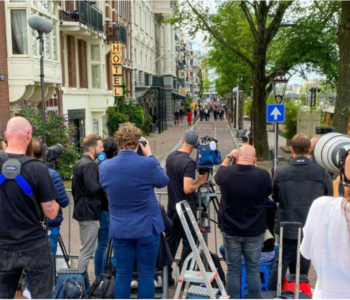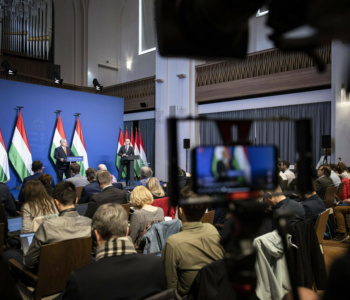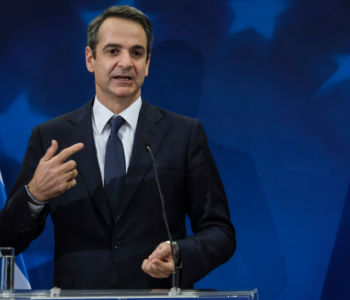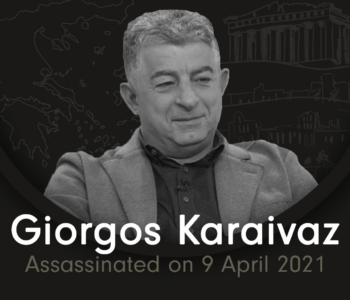Whether journalists ask spokespersons for comment or file formal requests, information is hard to come by. Some portals report a response rate in the single digits, while those who do get a response often find key information withheld.
A 2021 report found that the Albanian Ministry of Health was the worst performing institution in the region in terms of answering freedom of information (FoI) requests. The institution also had the highest number of complaints filed with the Data Commissioner.
This is despite the fact that Albania has one of the world’s top 10 best FoI laws. The implementation of this law continues to face challenges and difficulties as public institutions remain silent, don’t answer requests, and classify increasing amounts of information.
In April, the Data Commissioner tabled changes to the law that would give him more power to demand information be made public. This came after a record 992 complaints against state institutions during 2021 for failing to provide requested information to media, civil society, and the public. With an increase in complaints of 39% on the year before, the commissioner found in favour of 700 of the complaints.
These facts and figures are just the tip of the iceberg but give an idea of the need for change in Albanian society. But a set of recent measures introduced by Prime Minister Edi Rama’s government have left the media community concerned.
Introduction to the Information and Media Agency
Following his reelection for a third mandate in April 2021, the first decision of Prime Minister Edi Rama’s new government was to create the Media and Information Agency (MIA), dubbed the ‘Ministry of Propaganda’ by critics.
The MIA functions as a public legal entity, under the prime minister, based in Tirana and funded from “the state budget, donations, and other legal sources”. According to the government, its mission is to ensure transparency regarding policies, activities, projects, events and other matters including acts of the Council of Ministers and any state institution.
Its sole responsibility is to inform and communicate with the public and the media and prepare government positions on issues of public interests. In addition, it creates press releases and media content to supplement the reams of pre-edited footage produced by Rama’s personal TV channel, which is currently sent to every newsroom. The MIA also monitors media and “means of mass communications” to assess opinions on the government.
The general director of the new agency is Endri Fuga, Rama’s long-time communications chief, who is accountable and answerable only to him. Fuga holds a position equal to that of Minister of State, a position at the same level of an elected MP but without accountability before parliament or the public. Each ministry and government department currently has its spokesperson, appointed by the minister. Requests for comment and information are addressed to that spokesperson, who then responds.
The new system is supposed to work similarly, except the MIA manages everything behind the scenes. All responses are coordinated centrally, and press materials are created and sent out from one location. Communication with the media or members of the public can only take place with the explicit authority of Fuga, who also has the power to hire and fire spokespersons.
‘German model’
The Albanian government has consistently claimed that the MIA was built “exactly” on the German model, following two visits to the country. Exit asked EURACTIV.de – a partner media in Germany – to explain how the German model works. They explained that Germany has a government agency that is the first stop for journalists to put forward media inquiries: the Federal Press Office. This entity organises three press conferences a week and journalists are invited to answer specific questions here and in federal press conferences.
In Germany, the responsibility for appointing spokespersons is down to each institution, whereas in Albania, it lies with Fuga. Furthermore, Albanian fact-checking site Faktoje.al reported that the agencies were not similar. “As far as I know, there is no such agency [the same structure as MIA] in Germany, I have never heard of it,” said Corrective.org, German fact-checking organisation. The website of the Federal Press Office also explains that the institution does not supervise the media in any way, something the Albanian MIA does.
For Koloreto Cukali, the head of the Albanian Media Council, it is clear that the similarities are negligible. “First, ‘based’ is the wrong term to adjudicate it. They got the idea from there and adopted it according to their ‘wish’. Second, our society, media and government are different and work substantially different from German,” he told Exit.
Albanian media lawyer Dorian Matlija was also quick to debunk the government’s claim. “It has a similar name but not similar functions. In Germany, the main objective is to coordinate between ministries…It is not obligatory for ministers, and no one is overlooking ministers. It is totally different,” he told Exit.
The situation has raised concerns amongst the country’s media community, particularly when combined with other legislative and institutional measures. In 2018, the government put forward an anti-defamation package to bring online media under state supervision, with media facing high fines for vague violations.
While the package has undergone several facelifts in the following years, the latest public draft is not in line with Venice Commission recommendations or EU standards. There have been multiple calls to drop the package, but it sits on the agenda of parliament, where it can be passed at any moment with a simple ruling party majority.
In addition, the Albanian Audiovisual Media Authority, which would take on the role of judge and jury as per the above package, is now headed by Armela Krasniqi, another long-time comms aid of Rama and the Socialist Party. She was voted into the role against the calls of the European Commission by parliament, which at the time did not feature an opposition.
When you put all the pieces of the puzzle together, it is not hard to come to the conclusion of total state capture of public interest information.
“If you combine intimidated media and no guarantee for free speech, with lack of access to information, confused journalists, and a centralised agency, you see the big picture. Everything is related to how the government wants to control the message from the government to the media and media to the public,” Matlija explains. “The government wants to create its own landscape and narrative.”
Where we are now
While the decision to set up the MIA agency was taken in September, it has been functional since January 2022. Described by Fuga as “a modest agency in terms of budget and assets”, it is currently funded entirely from the state budget.
The agency currently has a total of 69 employees spread across six directorates; the Directorate of Citizen Information, the Directorate of Media Information, the Directorate of Information of Institutions, the Directorate of Coordination of Ministries and Agencies, the Directorate of Production and Events and Directorate of Finances.
According to Deputy Secretary of the Council of Ministers Elira Kokona, the agency’s budget is in total EUR 1.93 million, including salaries, insurance contributions, capital expenditures and operating services.
Journalists needing information are not convinced that it is worth the money. The editor-in-chief of Faktoje, Viola Keta, said: “There has been a decrease in transparency since January 2022. In my opinion, there is a misuse of the law on the right to information.” She added that answers were not received within the legal deadline in more cases than before, meaning journalists had to take the matter to the Data Commissioner.
In a parliamentary hearing, Fuga said that the only thing that has changed is that “there is better coordination on issues that affect several ministries together”.
Keta said that since the MIA started, refusals to provide information appear more coordinated and are using the same response, namely, an article of the transparency law which provides no answer to the question.
Criticism
The Albanian government has been adamant that the purpose of the agency is to promote better transparency and communication with the media. Exit asked Cukali if he felt this was genuine.
“In Albania, the government is opaque and non-transparent; it has made a habit to keep successfully secret every decision and operation. Getting the information that is due by law is already a ‘hell’ for independent media or journalists. This institution will add another layer of opacity to the information flow,” he said.
Cukali explained that there are concerns of troll factories operated by the government, backed up with in-depth investigations, that could be pushed through the new agency. “There is fear that these troll factories will be included in the new “Ministry” and paid by the taxpayers,” he said.
But are these fears justified? Cukali and Matlija both agree that we will just have to wait and see, although hopes are not high.
What the government says
Exit reached out to Fuga to ask for figures on requests made and granted since January, what methods are used for media monitoring, if monitoring includes social media, and for a response to allegations from media that transparency has actually decreased since MIA was established.
Having previously taken issue with reports in multiple media, including Exit, that criticised his public claims in parliament the MIA was based on the German model, his response focussed predominantly on that.
Fuga replied by dismissing the claims made by some media, adding “the answer is no, we respond to everyone and our job is not to keep numbers, but to respond. As I am doing to you now, even though your question is baseless.”
Even when it comes to the functioning of the agency, it seems that transparency will remain hard to come by, let alone when it comes to getting answers on important documents or government actions.
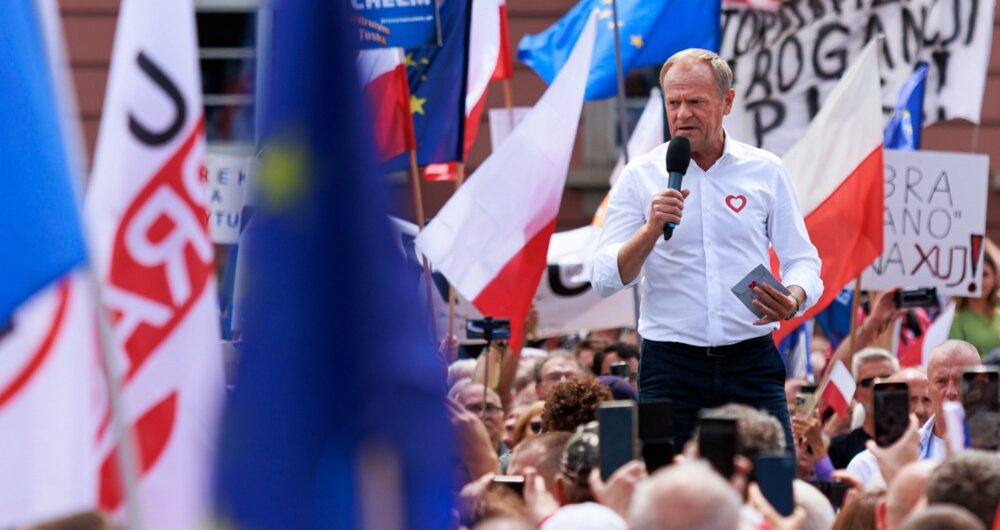 Library
Library


